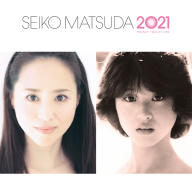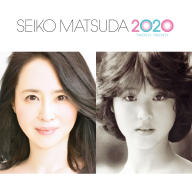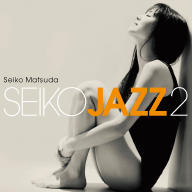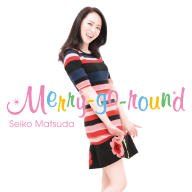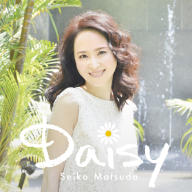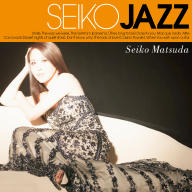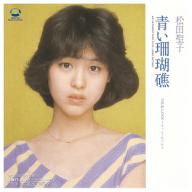Matsuda was born Noriko Kamachi into an aristocratic family in the southern city of Kurume. Her career began at 16, when she won the regional Sony talent show of 4,500 participants, only to be banned from the finals by her father. He did allow Matsuda to continue working with Sony and participate in vocal training. Matsuda's professional debut came a year later with the single "Hadashi no Kisetsu" (1980), and its follow-up, "Aoi Sangosho" (1980), selling more than 250,000 copies. Her third release, "Kaze wa Aki Iro" (1980), was the first of her 24 consecutive number one singles, an unprecedented achievement at the time, though later bested by B'z. Matsuda's debut album Squall, released in 1980, marked the real beginning of her ultra-prolific recording career: She put out two albums a year until 1985, and skipped a year only once in later years (in 2003). Sixteen charted at number one, and the 1984 effort Seiko Town pulled the unique trick of topping the charts simultaneously with the single "Heart no Earring" -- a feat never seen before and only replicated half-a-dozen times since. In 1983, Matsuda began writing her own lyrics with "Chisana Love Song," and she soon proceeded to writing more music, starting with title track of Canary (1983), although she waited until 2007 before taking the reins completely, with Baby's Breath being her first fully self-produced album. Matsuda's private life -- if it may be called that with all the attention it attracted -- was even more dynamic than her record schedule. Her relationship with pop superstar Hiromi Go led to them being dubbed the "couple of the century," although the affair ended because of Go's wish that Matsuda quit show business after marriage. Matsuda quit him instead, and processed to marry the actor Masaki Kanda, and, later, to spawn rumors of her numerous love affairs, which even resulted in a special slang term being coined to describe faux-innocent ladies of the type she allegedly was. She even had an affair with Masahiko Kondo, the love of her arch rival, pop idol Akina Nakamori, which led to Nakamori's suicide attempt in 1989. Nakamori never recovered her career after that, but Matsuda continued to come on strong, leaving her management company to gain control of her own career and then attempting to break into the Western market during the early '90s, adopting a new dance music style and a sexier look similar to Madonna's. Matsuda recorded a duet with Donnie Wahlberg of New Kids on the Block during that group's heyday in 1990, and the single "The Right Combination" climbed all the way to number 54 on the Billboard charts. Her 1990 album, Seiko, which was released in the U.S., didn't sell. She continued wooing the American public for several more years, working with Robbie Neville, David Foster, and Richard Carpenter, but took a break after her 1996 album, Was It the Future, failed to generate any significant buzz. Her third stab at the U.S. charts came in 2002 with the album Area 62, which landed two Top 10 hits on the dance charts. However, Matsuda still concentrated mainly on the Japanese market, where she maintained consistent popularity. Her career wasn't hurt even by another tumultuous streak in her personal life in the mid-'90s, complete with a divorce, another marriage, and accusations of sexual harassment being filed against her by her dancer (she won the case). In addition to continuing her music career -- she returned to Sony -- and being the country's most expensive dinner show performer, as well as a popular TV ad actor, Matsuda revived her movie career, appearing in seven movies between 1995 and 2008, including a cameo in Michael Bay's Armageddon. Meanwhile, her daughter Sayaka began her own idol career in 2002, releasing the album Doll in 2002 and starring in several Japanese movies.
Matsuda continued to release recordings steadily. Though she refrained from releasing an album in 2003 in order to coach her daughter, 2004 saw the release of her Top 10 Sunshine, led by its single "Smile on Me" (a duet with Takaaki Ishibashi).
Between 2005 and 2006, she issued four albums that included one compilation. All charted. Matsuda continued to draw admirers not only in Japan, but in Eastern Europe as well. Between 2007 and 2011, she issued four full-length albums and half-a-dozen singles. Three of the former and all of the latter charted. In 2010, Matsuda guested on the Fox Broadcasting Network's TV drama Bones and a year later, she was invited by Quincy Jones to perform at his retrospective concert at the Hollywood Bowl. In 2012 she toured as a guest vocalist with American jazzmen Fourplay. Her 2015 album, Bibbidi-Bobbidi-Boo, peaked at number six on Japan's pop charts, followed by 2016's Shining Star that peaked at number five. The following year, Matsuda issued the pop album Daisy in Japan, a Top 20 entry, and Seiko Jazz internationally. In 2018, she issued Merry-Go-Round in Japan, which peaked at number ten. After a world tour, Matsuda internationally released Seiko Jazz 2 in 2019. ~ Alexey Eremenko, Rovi
|
1
|
|
SWEET MEMORIES |
|
2
|
|
Missing You |
|
3
|
|
青い珊瑚礁 |


